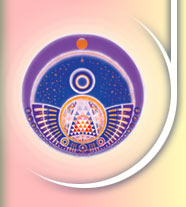Corporate Personhood
Revocating the Abusive Rights of Corporations
A review of the book
"Unequal Protection"
by Thom Hartmann
(Rodale Press, 2002 - www.rodalestore.com)
In his research about the "rise of corporate dominance and the theft of human rights", award-winning author Thom Hartmann has uncovered the institutional root-cause of the TNCs (trans-national corporations) taking over the Earth: the assumption of their corporate "personhood". That assumption goes back to 1886 and is the result of a (conspirational ?) subversion of the Santa Clara case in the Supreme Court records.
"The 14th Amendment -created at the end of the Civil War to grant basic rights to freed slaves- has been used by lawyers representing corporate interests to extend additional rights to businesses far more frequently than to freed slaves... (Since the Santa Clara case), America has lost the legal structures that allowed for people to control corporate behavior.
As a result, the largest TNCs fill a role today that has historically been filled by kings. They control most of the world's wealth and exert power over lives of most of the world's citizens... Their prime value -growth and profit at any expense- (is) a value that has become destructive for life on Earth.
This new feudalism was not what our Founders envisioned for America."
"For over 100 years, people have been led to believe that the 1886 case Santa Clara County v. South Pacific Railroad did in fact include the statement 'corporations are persons'... But it was never actually stated by the court."
Research into the original documents shows that the statement was added by the court reporter who wrote the introduction ("headnotes") to the decision. And headnotes have no legal standing.
Small subreptitious act (hint of conspiracy ?) = far-reaching and desastrous consequences for 6+ billion earth humans.
"Constitutional mechanisms designed to protect humans got turned inside out so today they do a much better job of protecting corporations, even when the result is harm to humans and other forms of life."
Since 1886, as a "person" under the Bill of Rights and the Equal Protection Amendment, a corporation is instantly endowed with the same rights & protections as people -and a few more.
"It's neither male nor female, doesn't breathe or eat, can't be enslaved, can't give birth, can live forever, doesn't fear prison, and can't be executed if found guilty of misdoings. It can cut off parts of itself and turn them into new 'persons', can change its identity in a day, and can have simultaneous residence in many different nations.
It is not a human, but a creation of humans. Nonetheless, the new corporation gets many of the constitutional protections America's
Founders gave humans to protect them against governements and other potential oppressors:
- Free speech, including freedom to influence legislation.
- Protection from searches.
- 5thAmendment protections against double jeopardy and self-incrimination, even when a clear crime has been committed.
- The shield of the nation's due process.
- The benefit of the amendments that freed the slaves.
What most people don't realize is that this is a fairly recent agreement, a new cultural story, and it hasn't always been this way:
- Traditional English, Dutch, French, and Spanish law didn't say that corporations are persons.
- The US Constitution was not written with that idea; corporations aren't even mentioned.
- For America's first century, courts all the way up to the Supreme Court repeatedly said: 'No corporations do not have the same rights as humans'.
Even more, corporate personhood was never formally enacted by any branch of the US government:
- It was never voted by the public.
- It was never enacted by law.
- It was never even stated by a decision after arguments before the Supreme Court."
"America's Founding Fathers and early presidents specifically warned that the safety of the new republic depended on keeping the corporations on a tight leash."
"The historical 'Boston Tea Party' resembled in many ways the growing modern-day protests against TNCs... The Tea Party participants thought themselves as protesters against the actions of the multi-national East India Company and the British government that 'unfairly' represented, supported & served the Company while not representing or serving the residents.
Resistance was organizing and growing... The citizens of the colonies were preparing to throw off one of the corporations that for almost 200 years had determined nearly every aspect of their lives through its economic & political power.
A newsletter called The Alarm circulated through the colonies; one issue stated: "(The East India Company's) Conduct in Asia, for some Years past, has given simple Proof, how little they regard the L:aws of Nature, the Rights, Liberties, or lives of Men. They have levied War, excited Rebellions, dethroned lawful princes, and sacrificed Millions for the sake of Gain... They have, by the most unparalleled Barbarities, Extortions, and Monopolies, stripped the miserable Inhabitants of their Property, and reduced whole Provinces to Indigence and Ruin."
Sounds familiar ? -Ask people in Latin America, Africa and Asia...
"As a result, the new American Nation considered freedom from monopolies and the power of corporations to be one of the fundamental rights.
In most states through the 19th century, there were laws regulating corporations: revocability of the licences & charters, prohibition from owning stock in other corporations, prohibition from making any political contribution, public domain access of all corporate documents...
The US Constitution does not even contain the word "corporation" and has never been amended amended to contain it, because the Founders wanted corporations to be regulated as close to home as possible, by the states, so they could be kept on a short leash."
Then the "slip of pen" of 1886 threw open the door to the corporate conquest of America & the world.
In fact, Hartmann notes: "... corporations usurped a status of full legal existence & constitutional rights of a 'person' when women could derive these rights only through their husbands. Women could not even exist separate from their husbands..."
What the Founders feared most has now occured: the ghost of the East India Company has risen again in a global mesh of mega East India Companies enslaving all nations as feudal colonies.
- The Fortune 1,000 companies control about 70% of the american economy.
- In the entire world, fewer than 500 corporations have a net value exceeding $ 12 billion.
- Just 200 corporations conduct almost a third of the entire planet's economic activity and employ less than a quarter of 1% of the world's workforce.
- Among the 100 largest 'economies' in the world today, over half are corporations, not countries.
- The assets of the world's 3 richest men exceed the combined gross domestic products of the world's 48 poorest countries.
Meanwhile, as the UN Millenium (2000) report points out:
- More than 2.8 billion people, close to half the world's population, live on less than the equivalent of $2 per day.
- More than 1 billion people do not have access to safe water.
- About 1/3 of all children under the age of 5 suffer from malnutrition.
- In 1998, for every $1 that the developing world received in grants, it spent $13 on debt repayments.
"The end result (of the profit-driven behavior) is that the nations are strip-mined of their natural resources, corporations 'play the spread' between labor costs among nations to skim off the cream, and the developed-world countries play the role England once did for the East India Company - building a huge military with world-wide reach so that it can act as the suppressor of local independence movements all around the world where 'our' corporatiosn are mining local resources or labor.
And often those suppressed movements for local culture bite back: when the United States did it in 1776, we called our citizens-soldiers 'patriots'. Today, however, when other nations's peoples do it against us we most often call them 'terrorists'."
In 12 sweeping chapters, Thom Hartmann documents the unequal consequences of corporate personhood dominance:
- "Unequal uses for the Bill of Rights: corporations sought protection under the 14th Amendment 100 times more often than did the people it was intended to protect.
- Unequal regulations: business interest are often directly involved in writing the regulations that they themselves will have to obey.
- Example: a multinational's attorney quit his job with the company, went to work for the FDA where he wrote a regulation that allowed that company's product into the food supply, then quit the FDA and went to work for the USDA where he participated in writing regulations eliminating labeling of the product for consumers, and then quit the USDA and went back to work for the multinational.
- Unequal protection from risk: corporations are legally allowed to avoid responsibility in ways that would never be permitted for an individual.
- Example: the 'SLAPP suits' by polluting & toxic corporations against people who get up in public venues and offer anti-pollution opinions: the next thing they know, they are 'slapped' under charge of slander, libel or harrassement and, unable to spend huge amounts of money in legal fees, they simply shut up... and the corporations continue 'business as usual'.
- Unequal taxes (and tax breaks): According to the US General Accounting Office, almost a third of all large corporations in the US paid no income tax whatsoever between 1989 & 1995 (last year such a study was done). In May 2001, the Secretary of the US treasury, P. O'Neill, said that corporations should be tax-exempt.
- Unequal responsibility for crime... Unequal Privacy... Unequal Citizenship...
- Unequal labor rights: the Third World becomes spotted with sweatshops like a child with measles... In Latin America, Africa & Asia, the UN's International Labor Organization catalogues over 250 million children (5-14 years old) working in hazardous industries and slave labor.
- Unequal access to the commons: (see the "Story of Cochabamba")
- Unequal wealth: in 1976, the richest 10 % of Americans owned 50 % of the american wealth. By 1997, they owned 73 %.
- Unequal trade: "Free trade" is a phrase behind which multinationals have essentially strip-mined both the developed & developing worlds. The developing world is being mined for its resources, including human labor. The already-developed world is being mined for its wealth. Under the trade--law model of the WTO, it is, nowadays, largely illegal to ban the import of products made by slaves or under inhumane conditions, or using chemicals that poison the local environment.
- Unequal freedom of speech: 13 states have now passed 'veggie libel laws' making it a crime to disparage the food supply.
- Unequal media: Only 3 corporations control most of the nation's 11,000 magazines.
- Unequal influence: The 1995 Texas Environmental Health and Safety Audit Act (aka the 'polluter immunity law') has been emulated in 25 states and is now considered at the federal level. This law basically allows polluting industries to avoid prosecution from polluting violations. It also gives them the ability to prevent the public from knowing about their violations by providing for jail & heavy fines for anyone publicly revealing corporate pollution facts."
For as bad as it all seems, it's up to us, says Thom Hartmann, to change the beliefs that no longer serve us. For example, in California & Pennsylvania, citizens have recently stood up and, through their local governments, begun to pass ordinances, laws & regulations that deny corporations the status of personhood.
The power is in the belief. Undo the belief and...
'Nine states -most recently South Dakota & Nebraska- have adopted referenda prohibiting non-family-owned corporations from engaging in farming', says attorney Thomas Lindzay. His organization has helped eight townships in Pennsylvania pass laws to keep out corporate factory farms.
But the revolution is not just about farming. 'Corporate governance is incompatible with people's ability to create sustainable democratic communities' says Lindzay."
of a "revolution to win back democracy"


